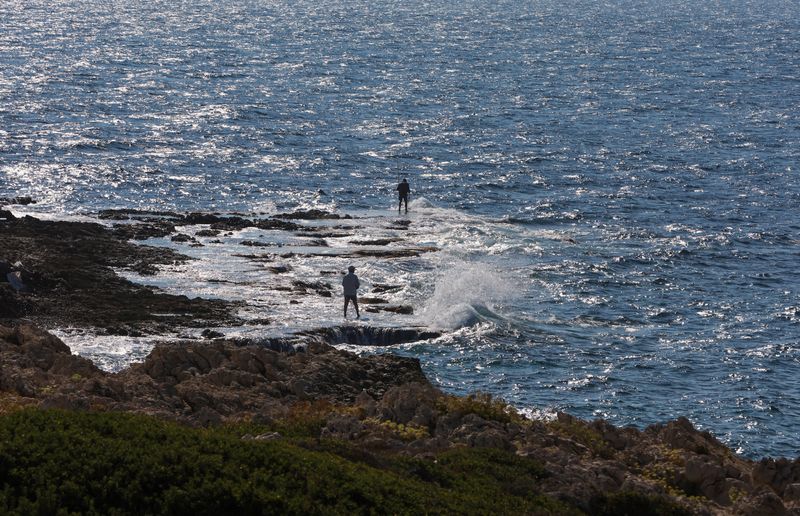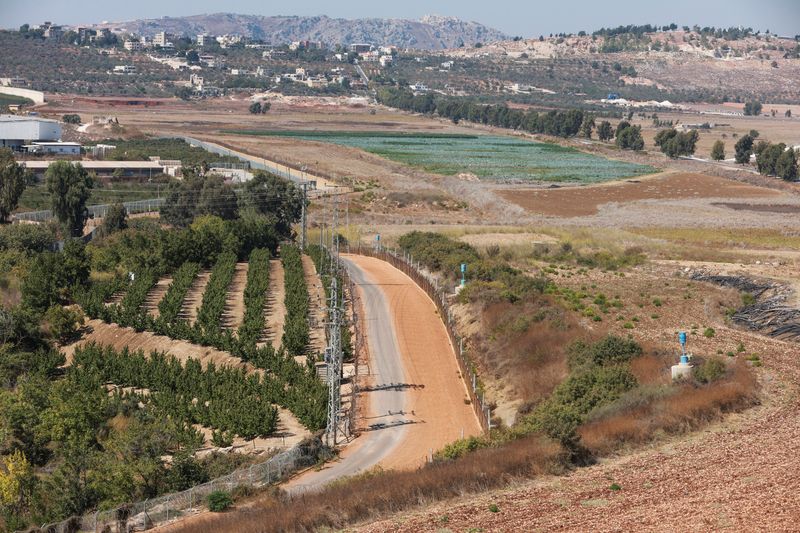By Dan Williams and Maya Gebeily
JERUSALEM/BEIRUT (Reuters) -Israeli Prime Minister Yair Lapid said on Wednesday he would push through a deal to demarcate a maritime border with Lebanon, forgoing a parliamentary feud that could have delayed the U.S.-brokered deal beyond a Nov. 1 election.
If finalised, the agreement - hailed by all three parties as a historic achievement - would mark a diplomatic departure from decades of war and hostility as well as opening the door to offshore energy exploration.
But time constraints are squeezing both sides. Israel's government is rushing ahead of the national ballot and Lebanese President Michel Aoun, who supports the deal, ends his term on Oct. 31.
"We need to pass this deal at this time,” Lapid, a centrist, told a news conference on Wednesday shortly after his cabinet endorsed the agreement. Otherwise, he said, it could be years before another window of opportunity.
A draft of the deal seen by Reuters said it was intended to be a "a permanent and equitable resolution" of the maritime dispute but did not resolve a disagreement over the countries' shared land border.
It will take effect once Lebanon and Israel send letters to Washington, which will issue a notice announcing the deal is in place.
On that day, Lebanon and Israel will simultaneously send identical coordinates to the United Nations laying out the boundary's location.
If passed, the border will begin west of a line of buoys that extends from the contested land border. Those buoys will remain in place, according to the deal's text.
The United States will act as an ongoing guarantor for any further maritimes disputes.
Israeli opposition leader and conservative ex-Prime Minister Benjamin Netanyahu has argued the deal could benefit Hezbollah, and accused Lapid of evading parliamentary scrutiny. There will be a 14-day review by lawmakers but not a full vote to ratify.
Lebanon, too, wants to move forward quickly.
Aoun is keen to sign the deal as his crowning achievement before his six-year term ends, according to political sources.
The deal will not be submitted to Lebanon's parliament but the prime minister, president and parliamentary speaker - the de facto ruling troika of an economically stricken country - have voiced satisfaction with its terms.
Lebanon's deep economic crisis is also an incentive for it to move quickly, as potential revenues from gas exploitation within its maritime border could help replenish state coffers or at least ease chronic electricity shortages.

French oil company TotalEnergies is set to begin exploration at the currently disputed Qana prospect immediately after the deal takes effect, though Lebanon's energy minister said preparations would take a number of months.
Israeli Energy Minister Karine Elharrar told Tel Aviv's 103 FM radio initial estimates put that prospect's total value at some $3 billion. Lapid said Israel will get about 17% of revenue under the new arrangement.
